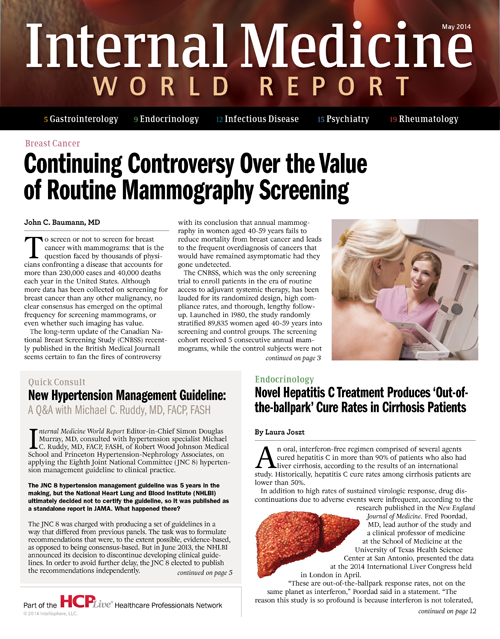Publication
Article
Internal Medicine World Report
Project ECHO Expands Reach of Hepatitis C Treatment in Underserved Rural Areas
Author(s):
A project to expand hepatitis C treatment by equipping primary care doctors with telemedicine tools more than doubled the proportion of patients expected to receive treatment in Arizona and Utah, according to a recently released government report.

A project to expand hepatitis C treatment by equipping primary care doctors with telemedicine tools more than doubled the proportion of patients expected to receive treatment in Arizona and Utah, according to a recently released government report.
Chronic infection of hepatitis C virus (HCV) can cause cirrhosis of the liver, liver cancer, and lead to a liver transplant. Many people may have the bloodborne virus but not know it because symptoms often don’t appear for years until the liver is severely damaged.
Approximately 38% of the estimated 3 million people living with HCV in the United States are linked to care for the disease, while only 11% are actually treated and 6% are cured, according to a May 9 morbidity and mortality weekly report issued by the Centers for Disease Control and Prevention (CDC). Barriers to treatment include a lack of expertise of HCV-related care among US primary care doctors and limited access to specialists.
To fully take advantage of newly approved medications that are both highly effective at treating chronic HCV and well tolerated by patients, US government officials say better linkage to care is urgently needed, especially among underserved populations. The report describes efforts in Utah and Arizona to remove obstacles to treatment for more people with HCV by implementing programs modeled on the Extension for Community Healthcare Outcomes project, also known as Project ECHO.
Video conferencing and case-based learning clinics for physicians and staff were first used in Project ECHO when it was developed in 2003 as a way to build primary care capacity to treat diseases among rural, underserved populations at the University of New México’s Health Sciences Center. A setup of weekly video conferences allows primary care doctors to talk about their specific patient cases and receive advice and mentoring from specialists knowledgeable on treatment of the disease.
The CDC-funded ECHO programs in Arizona and Utah operated from September 2012 to February 2014. Participating providers were based in areas where there was a shortage of HCV specialists and included those who served populations at increased risk for the virus.
Among the 280 patients seen in the two-state program, most (200 patients) were born between 1945 and 1965. Ten patients were born before 1945 and 70 patients were born after 1965.
Researchers analyzed patient outcome data to look for signs that primary care capacity had improved and to check whether the number of people initiating treatment for HCV increased.
Most of the clinicians (93%) had no previous experience in treating HCV. Combined data from Arizona and Utah indicated that 46% of HCV-infected patients who were seen in the video conference clinics received antiviral treatment, a proportion that was more than twice that observed in a separate CDC study in which 14—22% of those detected started treatment.
“The Project ECHO model was successfully implemented in two states, training 66 primary care clinicians, predominantly from rural settings,” according to Kiren Mitruka, MD, lead author of the CDC report.
The report’s authors concluded that the programs helped boost the number of primary care providers capable of treating HCV and that Project ECHO is an effective evidence-based model that can be used by state and local areas to enhance capacity to manage and treat HCV infection, especially among underserved populations.






